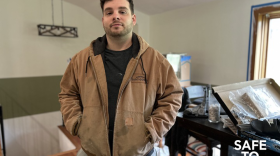Regulators say there aren't unsafe or increasing levels of PFAS chemical contamination in drinking water wells around the Seacoast's Coakley Landfill.
But many residents and state legislators disagree with that analysis – and they’re unhappy that contamination hasn’t been addressed more quickly at the Superfund site.
The state and Environmental Protection Agency gave an update last night in Greenland on recent testing efforts at and around the former mixed-use dump.
EPA project manager Skip Hull says agencies may be working towards a future fix at the site, but more study is still needed.
“If an active remedy is the solution, we need to do all this work ahead of time to totally characterize the nature and extent of the contaminant,” Hull said.
Legislators in attendance said they plan to hold him to the promise of future remediation if warranted.
The EPA also says it still can’t be sure how Coakley’s multi-material cap, installed years ago, may be contributing to PFAS contamination. Some tests last year suggested this.

Officials said at Tuesday’s meeting that compost and sludge from several locations may have been used in the topsoil that covers the cap. Those soils can often contain PFAS.
Other residents said while most of the levels of PFAS in private wells, fish and surface water near the site don’t exceed current state standards or federal health advice, that could change after the state proposes new limits on PFAS in drinking water.
Those proposals are expected in the next few weeks.
Meanwhile, state legislators are poised to pass a bill that’s been in the works for a couple years now, which would seek to require more clean-up at Coakley.








